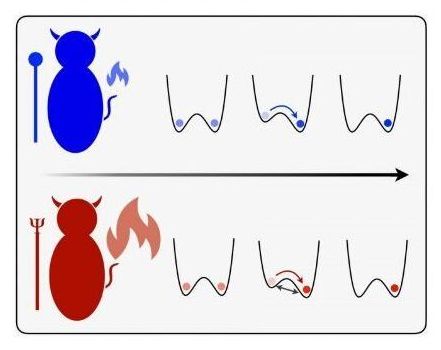To identify possible candidates for progression towards clinical studies against SARS-CoV-2, we screened a well-defined collection of 5632 compounds including 3488 compounds which have undergone clinical investigations (marketed drugs, phases 1 −3, and withdrawn) across 600 indications. Compounds were screened for their inhibition of viral induced cytotoxicity using the human epithelial colorectal adenocarcinoma cell line Caco-2 and a SARS-CoV-2 isolate. The primary screen of 5632 compounds gave 271 hits. A total of 64 compounds with IC50 <20 µM were identified, including 19 compounds with IC50 < 1 µM. Of this confirmed hit population, 90% have not yet been previously reported as active against SARS-CoV-2 in-vitro cell assays. Some 37 of the actives are launched drugs, 19 are in phases 1–3 and 10 pre-clinical. Several inhibitors were associated with modulation of host pathways including kinase signaling P53 activation, ubiquitin pathways and PDE activity modulation, with long chain acyl transferases were effective viral inhibitors.
Researchers from Trinity have discovered a uniquely quantum effect in erasing information that may have significant implications for the design of quantum computing chips. Their surprising discovery brings back to life the paradoxical “Maxwell’s demon,” which has tormented physicists for over 150 years.
The thermodynamics of computation was brought to the fore in 1961 when Rolf Landauer, then at IBM, discovered a relationship between the dissipation of heat and logically irreversible operations. Landauer is known for the mantra “Information is Physical,” which reminds us that information is not abstract and is encoded on physical hardware.
The “bit” is the currency of information (it can be either zero or one) and Landauer discovered that when a bit is erased there is a minimum amount of heat released. This is known as Landauer’s bound and is the definitive link between information theory and thermodynamics.
Construction sites are vast jigsaws of people and parts that must be pieced together just so at just the right times. As projects get larger, mistakes and delays get more expensive. The consultancy Mckinsey estimates that on-site mismanagement costs the construction industry $1.6 trillion a year. But typically you might only have five managers overseeing construction of a building with 1,500 rooms, says Roy Danon, founder and CEO of British-Israeli startup Buildots: “There’s no way a human can control that amount of detail.”
Danon thinks that AI can help. Buildots is developing an image recognition system that monitors every detail of an ongoing construction project and flags up delays or errors automatically. It is already being used by two of the biggest building firms in Europe, including UK construction giant Wates in a handful of large residential builds. Construction is essentially a kind of manufacturing, says Danon. If high-tech factories now use AI to manage their processes, why not construction sites?
AI is starting to change various aspects of construction, from design to self-driving diggers. Some companies even provide a kind of overall AI site inspector that matches images taken on site against a digital plan of the building. Now Buildots is making that process easier than ever by using video footage from GoPro cameras mounted on the hard hats of workers.
We ask students to login via google as we share a lot of our content over google drive. To access the same, a google account is a must.
The CRISPR-Cas9 system has revolutionized genetic manipulations and made gene editing simpler, faster and easily accessible to most laboratories.
To its recognition, this year, the French-American duo Emmanuelle Charpentier and Jennifer Doudna have been awarded the prestigious Nobel Prize for chemistry for CRISPR.
Circa 2013
Living below the sea is possible, at least for a short time. So what is stopping us creating colonies to ease over-population, or guard against disasters?
Circa 2019
Scientists worked out how to create breathable oxygen and fuel for electronics from water in zero-gravity without electricity for long distance space travel.
A very high speed camera.
Wang’s newest camera called, which has the wordy moniker “single-shot stereo-polarimetric compressed ultrafast photography” (SP-CUP), builds on previous iterations that were capable of shooting at even faster rates, some of them capable of shooting up to 70 trillion frames per second.
But what the new Caltech camera brings to the table is its ability to perceive the world more like humans can. The human eye’s depth perception relies on there being two of them — and the new rig can pull off the same stereoscopic trick.
“The camera is stereo now,” Wang said in a statement. “We have one lens, but it functions as two halves that provide two views with an offset. Two channels mimic our eyes.”
Cyberwar 2025
Posted in law, mobile phones, transportation
A short story.
A very short story with a long ending.
“What did you do in the Great Cyberwar daddy?”
What can I say? The answer is pretty much what everyone else did, which is try and s urvive. In other words, nothing. The first we all knew about it was when the electricity went off, and did not come back on again. Then other utilities, water, gas and phones. Then the Net itself went down and everyone was in the dark both literally and figuratively. All of that within the space of a few hours. For some it happened overnight and they awoke to a broken world. Most cars still ran, for a while, although GPS was also out. Self driving cars didn’t. When the fuel ran out the gas stations were not pumping (no electricity), the supermarkets along with everyone else could not buy or sell because the payment systems were offline. Within 24 hours looting broke out on a global scale from the richest nations to the poorest and martial law became the new norm.
Stem Cell Therapy on MP3.
The results of one empirical study have been recently published. The researchers of this study examined the effects of intravenous MSC therapy on patients infected with the COVID-19 virus[1]. It was demonstrated that intravenous administration of MSCs drastically reduced d…
A rectangular robot as tiny as a few human hairs can travel throughout a colon by doing back flips, Purdue University engineers have demonstrated in live animal models.
Why the back flips? Because the goal is to use these robots to transport drugs in humans, whose colons and other organs have rough terrain. Side flips work, too.
Why a back-flipping robot to transport drugs? Getting a drug directly to its target site could remove side effects, such as hair loss or stomach bleeding, that the drug may otherwise cause by interacting with other organs along the way.









